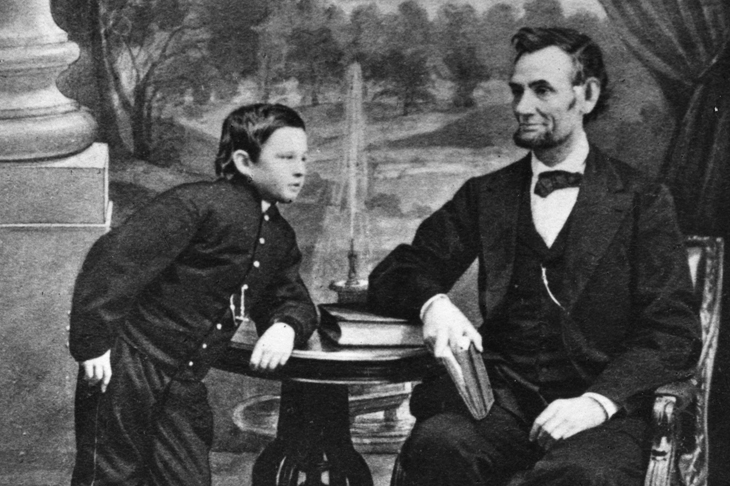On 5 February 1862, the night Abraham Lincoln and his wife gave a lavish reception in the White House, with the civil war swelling outside and their 11-year-old son Willie dying of typhoid fever upstairs, what was the state of the moon? Was it a ‘fat green crescent’? Or was it ‘yellow-red, as if reflecting the light of some earthly fire’?
According to George Saunders’s hugely ambitious Lincoln in the Bardo, his first novel after four peerless collections of short stories, neither of the above descriptions might be true, but when read in their tragic context, either can impart symbolic meaning. And meaning, as this novel so cleverly demonstrates, is not the same as truth.
Lincoln takes place on a single night, 17 days after the party. Little Willie, now dead, is laid to rest in the local cemetery. His grieving father visits him one last time. It is an acutely private moment, but, like all moments in the life of a president, it is also a public spectacle. Abraham believes himself to be alone, but the cemetery is crowded with ghosts. Their reality is delusional. The coffins in which they reside are not, they believe, coffins at all, but ‘sick boxes’. Unable, or unwilling, to accept death’s truth, they remain trapped in a liminal state — the bardo to which the title refers.
Saunders’s great feat here is the novel’s libretto-like narration. Two voices dominate: Hans Vollman, who died just as he was about to consummate his relationship with his young wife, and Roger Bevins III, who killed himself, having struggled with a different kind of acceptance — that of his sexuality. Others, however, continually and spectacularly intrude. Almost all of the ghosts get a chance to speak, and the tales of their individual deaths cohere into a violent collective history — an exhumation of America’s oppressive past.
Saunders provides earthly context for the events of the afterlife by augmenting his deathly chorus with a collage of historical accounts. Some of these, such as those in the short chapter collating conflicting descriptions of the moon, are fictional, if brilliantly ventriloquistic, but others are real and accredited, meaning parts of this novel are not so much written as assembled. We, as readers and as presences in the ‘real’ world, therefore inhabit a similar limbo to the death-shy ghosts: that between truth and meaning, historical accuracy and emotional veracity — a void, Saunders suggests, that only fiction can fill.
Saunders’s stories have always been as notable for their unexpected kindness as for the sharpness of their satire, and at times it has felt as if he were in conflict with his own instincts. Here, he crosses over completely, abandoning irony in favour of a disarming and distinctly unfashionable warmth.
The result is revelatory. In structure, execution and emotional force, Lincoln is a masterpiece — a tapestry of fact, counterfact and wild, hallucinatory invention. It never congeals into mere technical exercise, but instead swells into a symphonic and deeply humanistic vision — a mapping of the bardo between truth and fiction that has, perhaps more than Saunders ever could have imagined as he was crafting this book, become our contemporary reality.






Comments